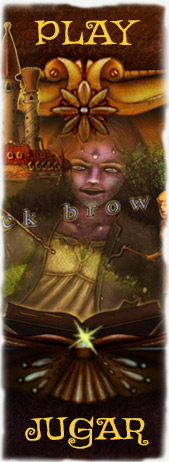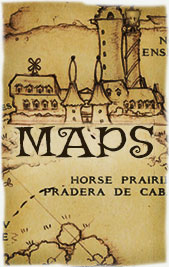Game Design Digest #2: Matthew Colville
A few years ago, I did an exhaustive review of all of Alexander Freed’s old blog posts, and I wrote a summary digest of all of the useful points that might be applicable to a CRPG. In the past few months, I’ve watched many if not most of Matthew Colville’s videos on Youtube, and turned this into the same educative exercise.
Matthew Colville is a former writer for Pandemic Studios, and lead writer for Turtle Rock Studios at this time. A lot of his youtube videos are for tabletop group gaming, i.e. D&D.
I hope these notes might be useful to someone without 50 hours of time to spend watching videos, but I would highly recommend watching Matthew on Youtube. He’s a great voice for RPG design, especially when applied to the D&D rules.
So here are my hand-typed notes of things I found useful, for future assistance in my own project. My handwritten notes are specifically selected therefore for solo CRPG design. I’ve helpfully collated these notes from different videos under group headings, as well.
General Tips:
Join game design communities on your favorite social media platforms.
Consider the type of campaign/game you want to make. What is the fantasy you want to capture for your players. Then you can design accordingly. Examples:
Heroic Fantasy – you are a hero from first level. I.e. Boromir, Legolas, etc.. You don’t care about greed, gold, and magic items so much. For example, 4E D&D.
Pulp Fantasy – you can be greedy, just seeking gold, magic items, fame or glory. Back in the day, D&D was much more pulp fantasy. For example, Village of Hommlet.
Bring lore to the players, because they will be too lazy to go to the lore. Maybe lore is needed to progress in the story. So a sage is needed to instruct the players, but he wants a favor first.
Players will usually choose a fun but hard way more than an easy but boring way to solve puzzles.
You develop taste in what’s good long before you develop the ability to actually create good things.
About Rewards:
Is your game really about rewards? Or more about exploration, storytelling, character growth, the social experience, etc.. It depends on your player preferences. For example:
Power gamers want to min max to become as powerful as possible.
Murder Hobos like the kill everything, doesn’t like puzzles.
The Specialists want to have fun playing a very specific character. It’s fantasy fulfillment.
The Actors love roleplaying and attention.
Casual Gamer/Storyteller just want to go along for a cinematic ride, as a passive audience member. Don’t try to force this gamer to be more than they are.
Mad Scientist (Matt’s personal addition to the tropes) wants to fuck around, be crazy, and see how far they can disrupt things. Usually young players.
So all of these types enjoy different rewards from playing.
Note the behaviour a game rewards is the behaviour a game encourages. I.e. if you want the player to go into the forest, put the rewards there.
Try clear goals and explicit rewards, i.e. like the quest text in WoW. For example, the temple is sending you on a quest, and you know your reward will be a Holy Avenger sword.
Making A Good Villain:
Show what evil the villain can do, or is doing. Kill off a beloved character. Have the villain make an early appearance, where he beats and humiliates the party. Find ways for the party to witness the villain doing evil things.
Villains can possess someone and speak through their mouths. They can appear in a mirror, or in the character’s dream. It is fun to have some heated exchanges with the villain before the final showdown, to increase the emotional investment.
How to make an NPC memorable, regardless of whether evil or good? Need to focus on motivation and perspective. For example: fear, pride, self-interest. Self-awareness on the part of NPC’s can be very impactful and lifegiving for the effort.
You can use the NPC not just to reveal the world, but also to reveal a different perspective on the heroes, strengthening their characters, which are a lot more important than the NPC.
About Murder and Monsters:
We need monsters so players can feel good about killing them. A monster per se is self-evident that it needs to be killed. What about intelligent monsters? The solution to complex ethics and morality is in factions. One tribe of goblins, the ‘Blood Skull Tribe’, might be clearly evil and needs to be killed, while the ‘Purple Mushroom Tribe’ might be peaceful and doesn’t deserve murder. So think in terms of factions more than races.
Types of combat encounters. 4 types. Patrols, scouts, guards, boss fights. Patrol is more like a puzzle to solve by finding and/or observing the pattern. A failure to avoid should not result in automatic doom or alert of the whole complex. Instead, increase the tension with increased scrutiny and alertness. Scouts range far and wide, mixed unit, not a regular pattern. Scouts are more likely to spot the PC’s first. Guards are like a stationary patrol. A puzzle to solve. Again, alerting the guards increases the danger and deadliness of an encounter, but is not necessarily fatal.
About Factions and Diplomacy:
Most things start to make sense when you see the world as factions struggling for power over land, resources, or each other. Unfortunately this fact creates a degeneration of ethics and more aggression, due to the power faction usually winning a conflict with a more peaceful faction. (Red Queen Hypothesis).
To form a foundation of campaign politics, start with a central tension. To hone down, consider the motivations and ideologies of all factions. What do they want? What do they believe in? What skills and resources are they using to achieve their goals?
An example of a great central tension with different ideologies is Professor Xavier vs. Magneto. What side benefits from disruption, and which from the status quo? Are there grey areas? How will your players fit into these factions? Consider the American Civil War, or the Roman Empire.
About General Campaign Writing:
You made your world and campaign for yourself, not for your players. If you re-read your stuff and you don’t laugh out loud, then maybe it isn’t good enough.
If they aren’t engaging with the lore, you’ve failed to present it dramatically. Maps are very helpful to engage players, but difficult to produce. The bottom line is to insert lore in the context of dramatic scenes. Example given was the Kessel Run.
Sociology studies are really helpful. What is the culture about? What are its values? Try an exercise to focus your essential lore down to only one page.
Starting in a tavern. It’s traditional, but it’s also a helpful example of how to start a campaign. The tavern a helpful microcosm of your game setting. It allows a player to get to know their character through interacting with standard tavern NPCs and tropes.
The DM can quickly and easily introduce faction tensions in the setting, preferably with a fight. Maybe the locals are hating on a greedy lord. Maybe there are miners with dreams of riches, or competing miners. Focus preferably on the central tension at this point rather than minor side quests.
You could also reveal how these townsfolk feel about adventures. Maybe they assume the adventurers are troublemakers, meddlers, etc.. Maybe there is a turf issue, the local rogues or wizards are threatened by a newcomer.
You could highlight racial tensions if they are relevant, as well as factions. So it’s a slow burn, but there is no starting goal, no immediate motivation, just talking amongst each other.
‘Adventure Hook’ – the receipt of the main quest, the discovery of the thread that the DM expects the party to follow.
About Scenario/Adventure Writing:
Avoid Pass/Fail Scenarios! Instead use heightened stakes. If a player fails a roll, need to improvise to compensate, creating heightened drama. Fail a stealth check, guard comes to investigate, or calls a friend. He doesn’t automatically catch and defeat the rogue, game is over.
Pass or die binary outcomes are not dramatic. It is OK to fail a lot and still make it through, by overcoming setbacks and inventing new ways to win. D&D is a cinematic adventure. Another alternative to a fail or die is progress at a cost, such as losing something valuable. ‘Failing forward.’
An example of increasing tension is getting spotted by a patrol. You don’t want the entire complex to be suddenly alerted. You want to prolong the tension as long as possible without going nuclear.
Railroading, Agency, and Choice. Matt’s general rule working on big games – tell player what to do, but not how. There is a difference between herding players to the prepared content, and railroading them towards an outcome that you really want to happen, which is an attack on player agency.
Skill challenges – introduced in D&D 4th Ed. Great opportunity to simulate a movie-like montage sequence or chase scene. Goal is to stimulate the players to examine their skills to creatively find a way through the sequence.
Conclusion:
That’s it for my notes from Matthew Colville’s videos, but there is a huge amount more on Youtube. (As I said, I watched dozens of hours of his content.) If you like what you see here, then check him out, especially if you are interested in the D&D flavor of game.

